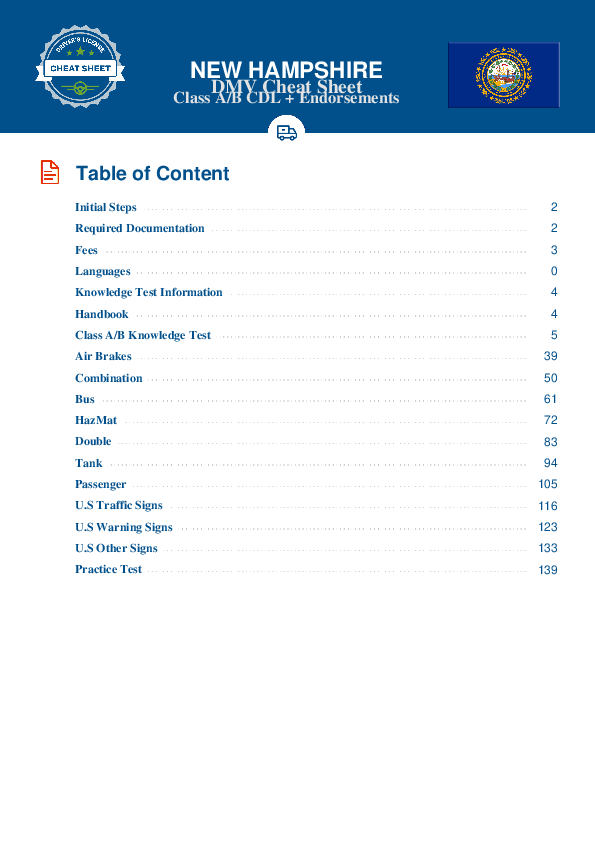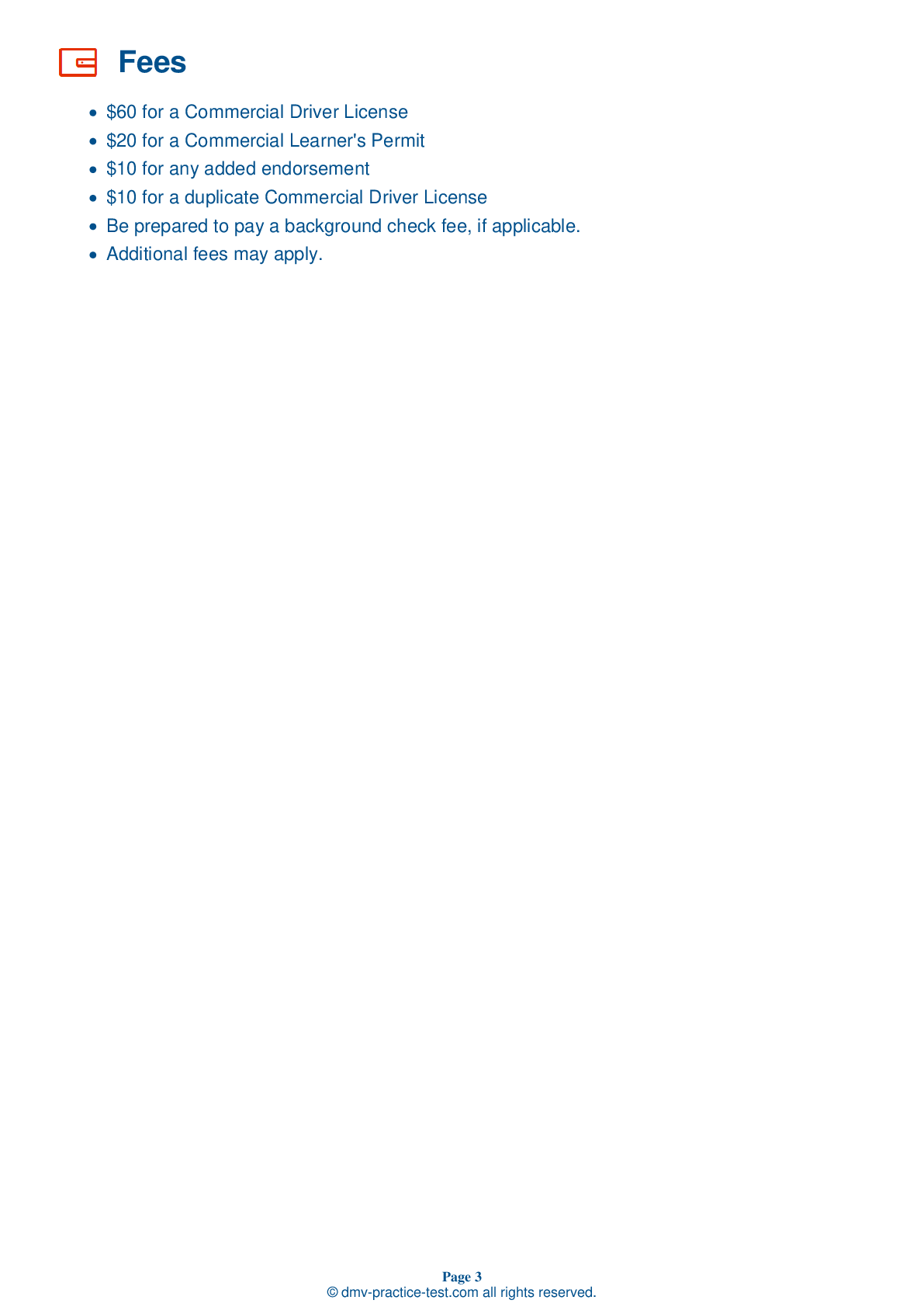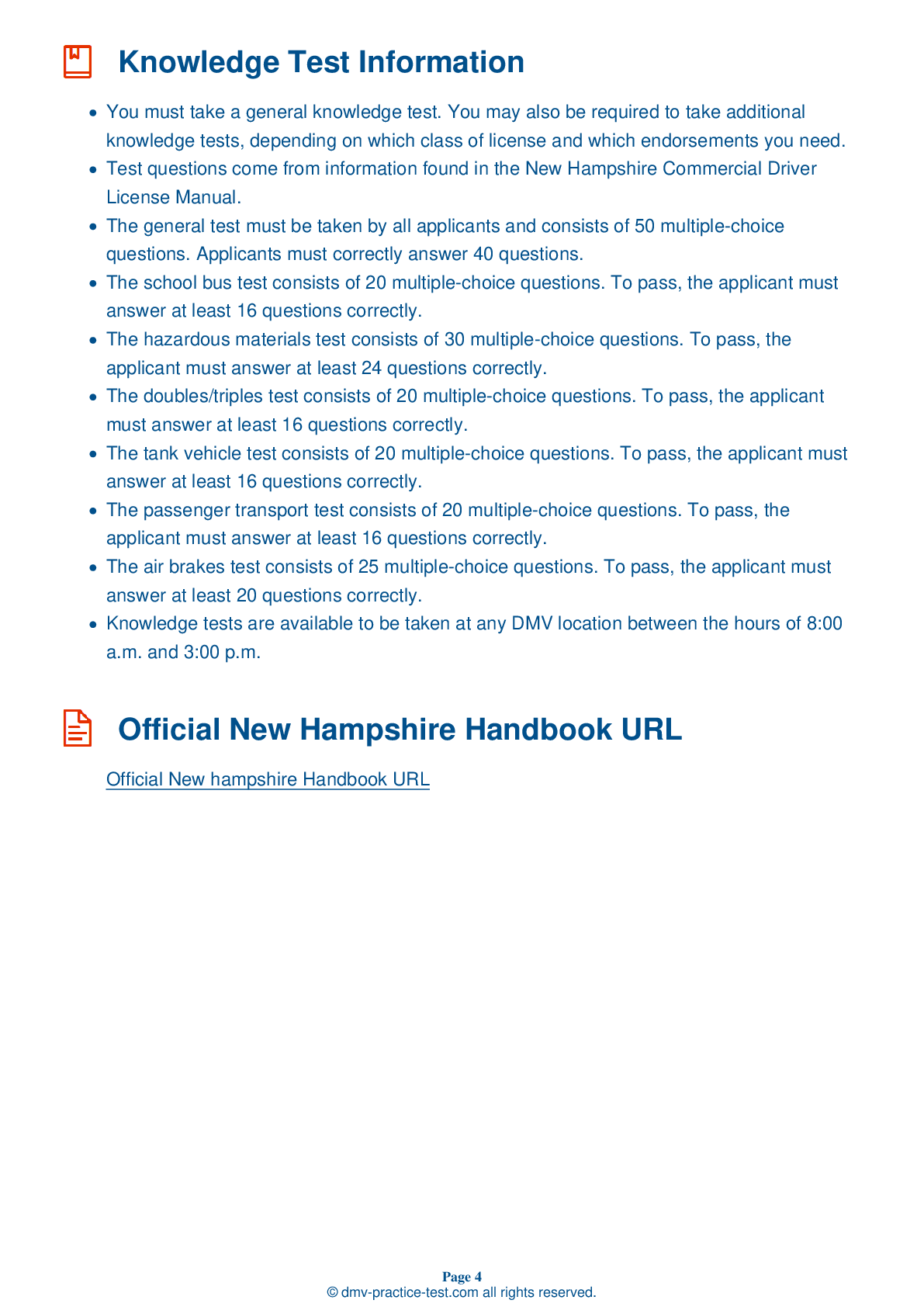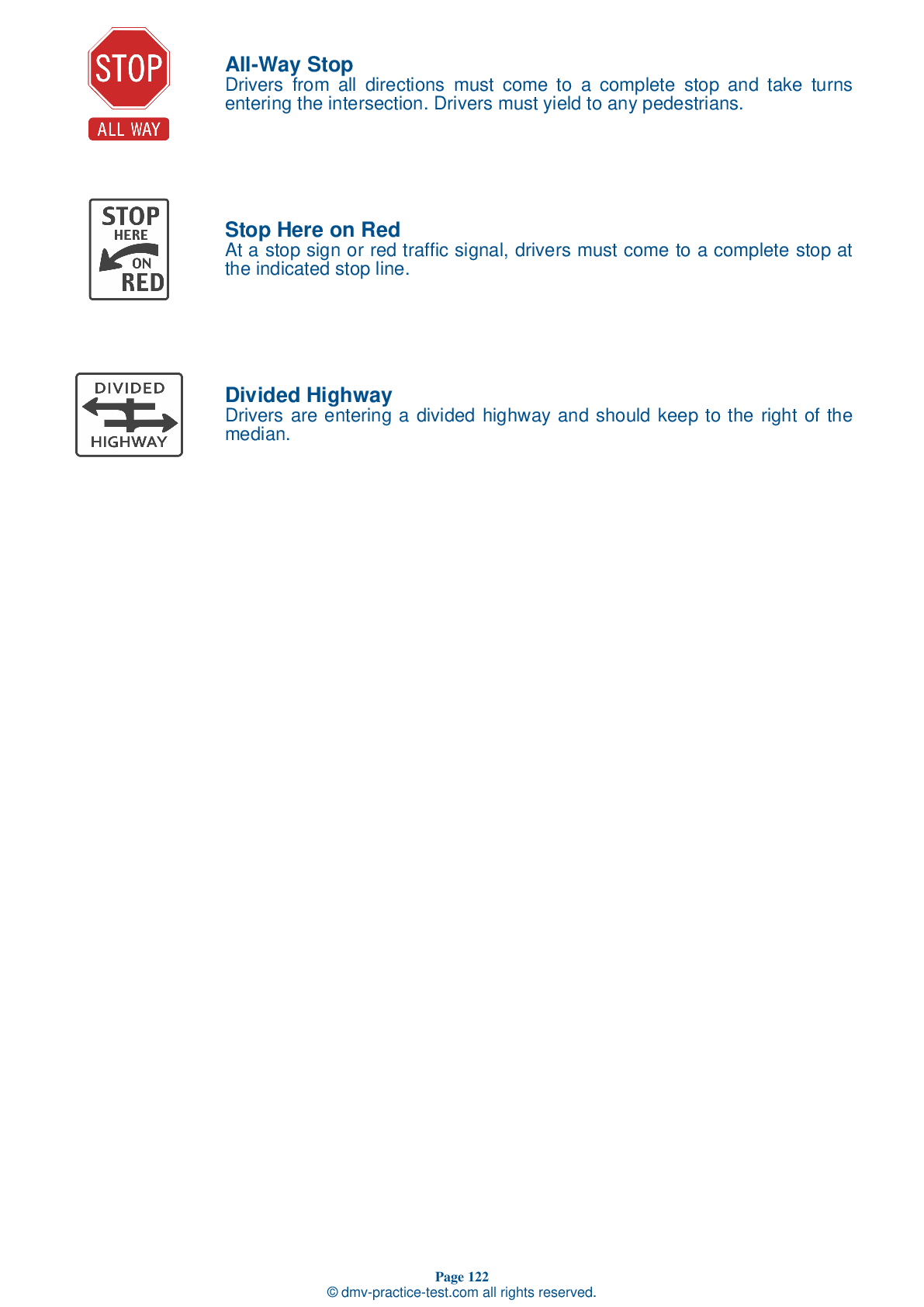Air Brakes #2
Air Brakes Endorsement Test | New Hampshire 2026 #2 Page 2 of 4
Train for FREE online with our New Hampshire CDL air brake test. The official exam test consists of several obligatory parts, with all of them checking your knowledge of different blocks of road rules. If you need to obtain a NH Class A/Class B driver license in 2026, practice as much as possible. Free sample tests published on our website will help you check and improve your knowledge and boost your grades. Please bear in mind that the requirements for CDL may vary from state to state.
25
20
20
7 . A tank endorsement is:
Optional when transporting hazardous materials.
With some exceptions, you must have a tank endorsement to transport liquids or gases. This applies to both hazardous and non-hazardous substances.
8 . When traveling down a steep downgrade:
On long and/or steep downgrades, you should primarily use engine braking to control the speed of your vehicle. Use your brakes only as a supplement to this effect.
9 . If you’re driving and the ABS warning light comes on, it means:
The ABS needs to be activated.
Vehicles with Anti-Lock Braking Systems (ABS) have yellow malfunction lights to alert the driver if something is wrong with the braking system. If these lights activate, the driver may have lost ABS on one or more wheels.
10 . To stop a vehicle using air brakes:
The brake knob should be pushed in.
To stop normally in a vehicle with air brakes, press down the brake pedal.
11 . Using the brakes creates heat. If too much heat is produced:
Brakes are designed to take a lot of heat, but drivers should not rely solely on the brakes to slow their vehicle. Brakes may fade and lose their ability to slow down the vehicle if they become too hot, so drivers should also rely on the engine braking effect.
12 . Emergency brakes are:
Only required when transporting hazardous materials.
All trucks, truck tractors, and buses must be equipped with emergency brakes and parking brakes.
2026 New Hampshire | Frequently Asked Questions
A CDL Class B license in New Hampshire is designed for operators of commercial vehicles with a GVWR of 26,001 pounds or more, or a vehicle towing another not exceeding 10,000 pounds. This class includes straight trucks, large buses, segmented buses, box trucks, dump trucks with small trailers, and trucks towing small trailers.
A Class B CDL license in New Hampshire allows you to operate commercial vehicles such as straight trucks, large buses, segmented buses, box trucks, and dump trucks with small trailers. You can also operate a vehicle towing another vehicle not exceeding 10,000 pounds. However, it does not permit operation of combination vehicles (Class A).
In New Hampshire, to acquire a Class B CDL, you must be at least 18 years old (21 for interstate driving), possess a valid New Hampshire driver's license, and pass a vision test. You also need to pass a general knowledge test and a skills test, which includes a pre-trip vehicle inspection, a basic controls test, and an on-road driving exam.
To qualify for a Class B CDL license in New Hampshire, you must be at least 18 years old. However, if you intend to drive commercial vehicles across state lines (interstate driving), or carry hazardous materials, you must be at least 21 years old. Always ensure to check the latest regulations.
While a Class B CDL license in New Hampshire allows you to operate certain types of commercial vehicles, specific endorsements may be required to drive particular vehicles or carry specific cargo. For instance, you'll need a Passenger (P) endorsement for buses, School Bus (S) endorsement for school buses, and a Hazardous Materials (H) endorsement for transporting hazardous materials.
The Class B CDL skills assessment in New Hampshire includes three parts: the pre-trip inspection, basic vehicle control, and on-road driving. Candidates must demonstrate knowledge of vehicle inspections, show ability to control the vehicle by backing and maneuvering in a confined space, and display safe driving practices on public roads.
Yes, Class B CDL license holders in New Hampshire are limited to driving single vehicles with a gross vehicle weight rating (GVWR) of 26,001 pounds or more, or a vehicle towing another not exceeding 10,000 pounds GVWR. They can't drive a vehicle that falls under Class A (like tractor-trailers) unless they have the appropriate endorsement or upgrade to a Class A CDL.
In New Hampshire, the written Class B CDL test is primarily offered in English. However, some testing centers may provide assistance or translations in other languages. It's recommended to contact the testing center directly to inquire about language accommodations. Federal regulations require all CDL holders to have a basic understanding of English for safety reasons.
Yes, you can request accommodations for the Class B CDL written exam in New Hampshire if you have a disability. The Division of Motor Vehicles (DMV) complies with the Americans with Disabilities Act (ADA) to provide reasonable accommodations. Contact your local DMV office in advance to discuss your needs and arrange suitable accommodations for your test.
Yes, if you don't pass the Class B CDL written test in New Hampshire, you can retake it. However, you may have to wait a specific period before you can attempt the test again. You might also have to pay a re-examination fee each time you retake the test. It's advisable to study thoroughly before reattempting.



